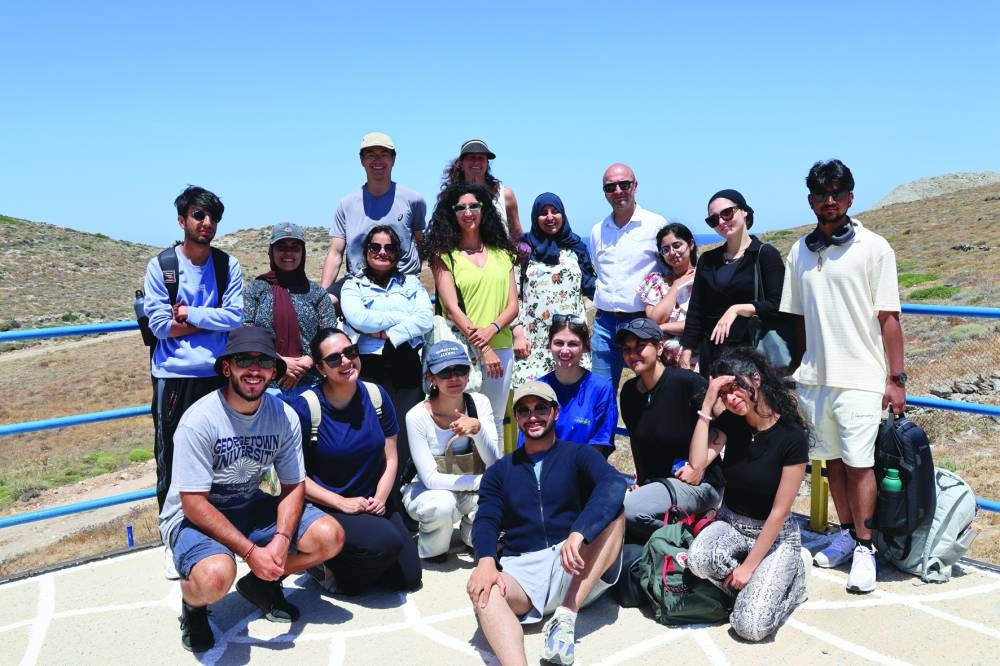Students from Georgetown University in Qatar (GU-Q) have reflected on a journey that had transformed their understanding of climate change.
They had spent two weeks in Greece as part of the 'Greece Summer Symposium: Adaptation in a Climate Change Hotspot', a programme jointly organised by the GU-Q and Georgetown University's Earth Commons Institute hub in Greece to study and find solutions to environmental challenges in Greece.
The immersive trip is part of a new GU-Q environmental science course offered in the fall.
With recent wildfires and rising temperatures outpacing the global average, Greece provided a vivid context for their studies.
Fourteen GU-Q students from 12 countries crisscrossed the nation, from Athens’ historical sites and forests that faced recent catastrophic wildfires to organic farms on the islands of Andros and Paros and cutting-edge desalination plants on Syros Island.
They explored ways to save water, such as collecting rain and reusing greywater, and spoke with locals about reducing waste and protecting marine life.
"We wanted students to grasp the bigger picture- how climate change affects water resources, food security, ecosystems, and entire communities," said Prof Raha Hakimdavar, who designed and is teaching the course.
Throughout the symposium, students participated in workshops, field visits, and discussions led by local and regional experts, gaining insight into Greece's unique challenges and innovative approaches to environmental management and sustainability.
This hands-on learning enhanced their ability to fully understand and explain complex environmental issues to anyone, according to Prof Hakimdavar.
The students' diverse experiences, like learning about farming methods that protect the environment on Andros Island and Paros, will inform future policy recommendations focused on eco-friendly tourism, water conservation, and community engagement.
By the end of the symposium, students left Greece with a stronger sense of environmental stewardship.
Reflecting on the journey, Prof Hakimdavar said: "There is no better way to learn about environmental issues than in the field with experts. Through the unique immersive component of this course, we hope to inspire our students to lead the fight against global challenges."
Over the next few months, students will work in groups to develop targeted solutions to the environmental challenges observed during their trip.
The novel approaches developed through these final course projects will then be shared with programme partners in Greece.

